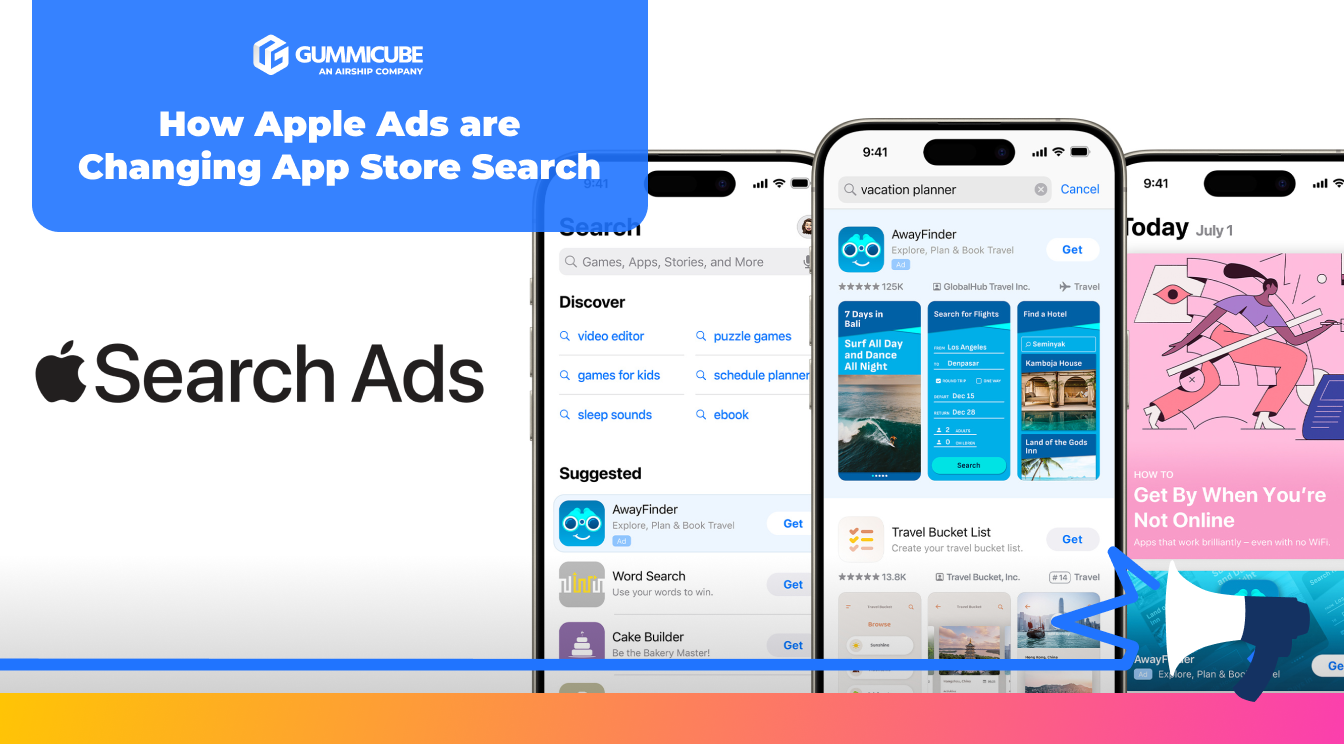
Netflix is Changing Strategies to Elevate User Engagement
Posted on February 5th, 2026
Netflix’s mobile revamp is a strategic acknowledgment that user behavior has shifted toward social-first, vertically consumed, algorithmically surfaced content.

The legal saga between Epic Games and Apple over Fortnite's removal from the iOS App Store has taken a significant turn, as the game prepares to make its return to iOS devices next week. The decision stems from a recent court ruling that found Apple in “willful violation” of an earlier injunction, signaling a victory for Epic Games in a long-running legal battle that has drawn attention from developers, app store optimization (ASO) experts, and the broader app development community.
For those involved in ASO, this latest development carries significant implications. Apple’s longstanding 15%-30% commission fees, the catalyst for Epic Games’ dispute, is being contested in both the U.S. and Europe, and this ruling could set the stage for broader changes in how app stores manage in-app payments. The return of Fortnite marks more than just a win for Epic Games. This is a pivotal moment for ASO professionals, as it highlights the evolving landscape of app store regulations, in-app payment systems, and developer freedoms.
Below, we’ll dive into the details of the case, explore its impact on ASO strategies, and discuss what app developers and marketers should expect moving forward.
The conflict between Epic Games and Apple started in 2020 when Epic introduced an alternative payment method in Fortnite to bypass Apple’s 30% commission fee. By implementing direct payment options, Epic aimed to offer users a more cost-effective transaction while keeping the bulk of the revenue within its ecosystem. However, Apple quickly removed Fortnite from the iOS App Store, citing a breach of its policies that prohibited apps from circumventing the App Store’s payment system.
Following this, Epic Games filed a lawsuit against Apple, accusing the tech giant of monopolistic practices. The lawsuit led to a legal battle that spanned years, with significant rulings and court decisions along the way. In 2021, U.S. District Judge Yvonne Gonzalez Rogers ruled that Apple could no longer prevent developers from linking to external payment methods. However, this ruling did not immediately result in Fortnite’s return to the App Store.
The key moment came this week when Judge Rogers found that Apple was in "willful violation" of the injunction, which prohibited it from blocking developers from adding external payment links. Epic Games CEO Tim Sweeney confirmed that Fortnite would return to iOS as a result of this decision, marking a major win for the company after a lengthy legal battle.
The return of Fortnite to the U.S. iOS App Store is not just about the game's return to popularity. It's a signal of significant changes ahead for app developers and the app store ecosystem. Here’s how the situation impacts ASO and what developers should keep an eye on:
One of the most significant aspects of this ruling is the shift in how in-app payments are regulated. Apple’s long-standing practice of taking a 30% cut from every transaction has faced increasing scrutiny, especially with the rise of alternative payment systems and regulatory challenges in both the U.S. and Europe. The U.S. court’s decision to force Apple’s hand could pave the way for more flexible payment options within the iOS ecosystem, particularly for developers looking to bypass hefty commissions.
For ASO professionals, this shift could lead to major changes in how apps manage payments and pricing models. Developers who once depended on Apple’s in-app purchase system might now explore alternatives, creating new opportunities to optimize app monetization strategies. This also means developers will need to revisit their app store listings and app descriptions to reflect new payment structures, potentially giving them a competitive edge.
The Fortnite case brings attention to the broader competitive landscape within app stores. If developers can now direct users to external payment methods without fear of being removed from the App Store, this could lead to increased competition in app store rankings. Apps that offer more affordable pricing or better payment terms could attract more users, making it essential for ASO professionals to stay on top of these developments to maintain their app’s visibility and competitiveness.
Privacy and trust are necessary for long term app growth. As app store payment systems evolve, trust and transparency will become even more crucial. Developers will likely be more transparent about how their payment systems work, especially in light of the Fortnite case. Users are increasingly aware of the costs associated with in-app purchases and may gravitate toward apps that offer clearer and more user-friendly payment options.
For ASO professionals, fostering a transparent and trustworthy brand identity will be key. Optimizing app descriptions and metadata to highlight the benefits of alternative payment systems or more affordable pricing could boost user acquisition, especially if users are educated about the advantages of these changes.
App developers will need to carefully integrate these new keywords into their app store listings to ensure they’re reaching users who are searching for apps with more competitive pricing or alternative payment methods. This will require ASO professionals to stay agile and adjust their keyword strategies as the landscape continues to shift.
While the current ruling applies specifically to the U.S. iOS App Store, the implications of this decision are likely to reverberate globally. In Europe, the Digital Markets Act (DMA) has already taken steps to address similar concerns, requiring Apple to open its ecosystem to more competition. If other regions follow suit with similar regulations, developers could see more flexibility in their monetization options worldwide.
For ASO, this means global strategies will need to be adjusted to account for varying rules and regulations in different regions. App descriptions, metadata, and promotional strategies may need to be localized to reflect the specific payment opportunities available in each market.
The Fortnite ruling is a game-changer for the app store ecosystem, and ASO professionals must stay proactive in adapting to this new reality. Here are a few steps to consider:
The return of Fortnite to the iOS App Store is not just about the game's return to mobile devices; it’s a sign of a larger shift in how app stores operate, especially when it comes to payment systems. As Apple faces increasing pressure from legal rulings and regulatory bodies, developers can expect more flexibility in how they handle in-app payments.
The implications of this case are far-reaching, and staying on top of these changes will be critical for app developers and marketers.
As the app store ecosystem continues to evolve, staying ahead of the curve is essential. Gummicube’s ASO services can help ensure your app remains optimized and competitive in this rapidly changing landscape. Want to learn more? Reach out to us today!

Netflix’s mobile revamp is a strategic acknowledgment that user behavior has shifted toward social-first, vertically consumed, algorithmically surfaced content.

Apple’s upcoming Siri update, powered by Google’s Gemini AI model, represents a meaningful inflection point for the App Store ecosystem and ASO strategies.

Apple Ads are changing App Store search by expanding ad placements while simultaneously reinforcing relevance as the core driver of visibility. Read more!